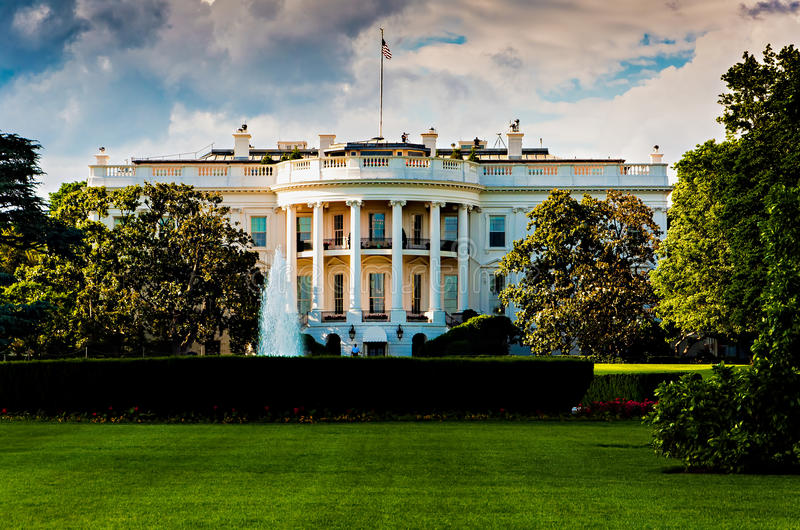Technological Deflation: The Curse of Governments
https://www.dreamstime.com/stock-photo-white-house-beautiful-summer-day-washington-dc-image47821694
Governments benefit from inflation. This is one of the most basic tenets of finance/economics. We hear repeatedly for those in the mainstream how bad deflation is. The Fed, along with other central banks, are constantly fighting off deflation. In fact, the Fed, the US central bank, has a mandate of 2% inflation per year. What this means is Congress has legislated that the Fed decrease your purchasing power by 2% a year and that it is a good thing.
This is a point that is often cited by those in crypto. It is well know that fiat currencies are diminished in value. While most know this, few understand the reasoning. Inflating of assets is a good thing since it makes what you own more valuable. However, the key is to own the asset which omits most people. Sure, many people have a few dollars in a 401K or perhaps have a bit of equity in their house. Nevertheless, the bottom line is few people around the world have much that is going to appreciate at a rate that will alter their life. The best they can hope for is long term growth might enable them to enjoy a reasonably comfortable retirement.
Inflation prevents default. We saw the opposite of this in the US housing crisis. The old belief was that people would never default on their homes and when the prices were appreciating at an insane rate, people did not. Yet, when things turned the other way, what happened? People stopped paying their mortgages since their equity was wiped out. Why keep paying on something that is worthless to you? Once again, this deflationary cycle was viewed as bad and, depending upon your position, it might have been. Of course, if you were one with the ability to buy after the collapse, the massive deflation was to your benefit.
My point is that deflation is nothing more than the concept of prices getting cheaper. Yes I am well aware that there is a lot more to it but for the sake of this discussion, that is basically what happens. Governments are in a bind because they are seeing the value of most everything dropping in price. The reason for this is that technology is penetrating all industries at a massive rate. And this is where they are hung out to dry: technology is deflationary. As more of the worldwide economy is digitized, the rate of deflation explodes. The laws of informational technology are such that a 30%-50% deflationary rate per year is realized. What do you think that does to the Fed's 2% mandate? By the way, based upon my back of the envelop calculations, from the 2% of the economy that is IT, this causes a .75% deflationary pressure meaning that inflation in the other 98% of the economy needs to be 2.75% to reach their mandate. Now you can see why 1% or a little more is all they seem able to get.
What does all this mean in the future? I believe government receipts are going to plummet. As things are worth less, the tax base declines. Of course, the governments of the world will try to make up for it by taking a larger percentage from those who do have something left but how often has this worked. When you have a middle class basically eliminated and it starting to move towards the upper middle class, what do you have left? Only the wealthy, a group that has access to enable them to keep their contributions down. This is really going to put pressure on the different governments around the world.
Consider how many items you have in your possession today compared to 20 years ago that have a chip in them. The average household has 15-20 of these devices. This is exactly the market that I am referring to. All these items, and they are expanding each year, are under the laws of IT. They are extremely deflationary. Imagine what life will be like when the IOT (Internet of Things) really takes off.
Just ponder for a second how much you spend now compared to the past on these items:
Music: Pandore versus buying cds
Video Rental: renting movies vs Netflix
Pictures: digital is free versus getting film developed
Cell phone plans
Enclyclopedias versus Wikipedia
Paper Atlas vs Google Maps
Cd/DVD players
Mail versus email
Scanning versus copying
You get my point. And now we have blockchains coming online which reduce the costs of financial transactions. Ultimately, the world is being swallowed up by the Internet and the nation-state concept will suffer. Governments are holding on for dear life and institutions are making a last gasp effort. It is almost funny to see corporations feed off each other. Tesla and Amazon are excelling at the expense of the likes of Ford and Walmart. Each of these entities are looking at making things less expensive for consumers. That is the disruption they cause.
We live in a technological age. Governments of the world, especially first world nations, will really be in trouble when 5%-8% of the economy is under the laws of IT. At that point, the overall deflationary rate for the country could well be near 5%. This will cause defaults to shoot up crippling governments.
If you liked this post, please upvote it and resteem it.
Thank you.

Very well put, it's something you've noticed but couldn't quite out your finger on and your price comparisons neatly puts things into perspective.
agree.....upvoted
Thank you Neha...I am glad you liked the article.
welcome :)